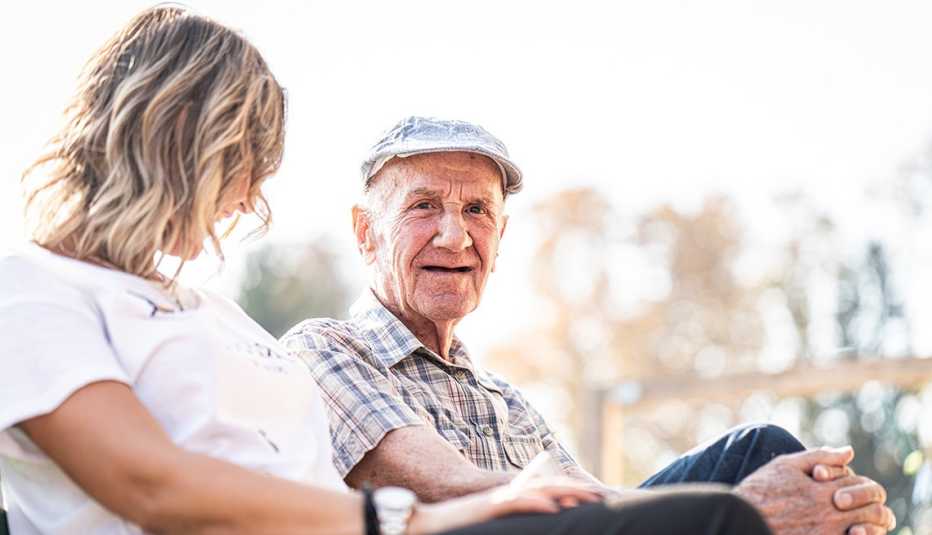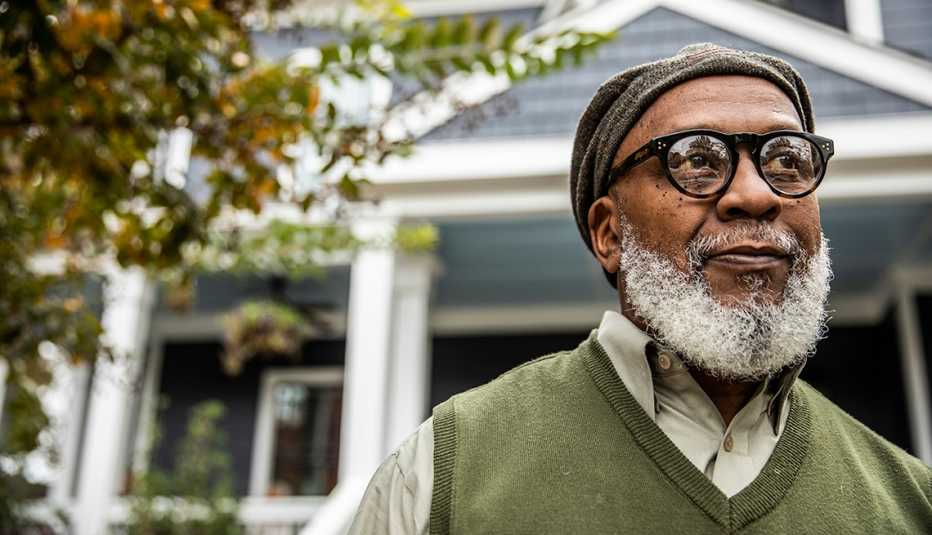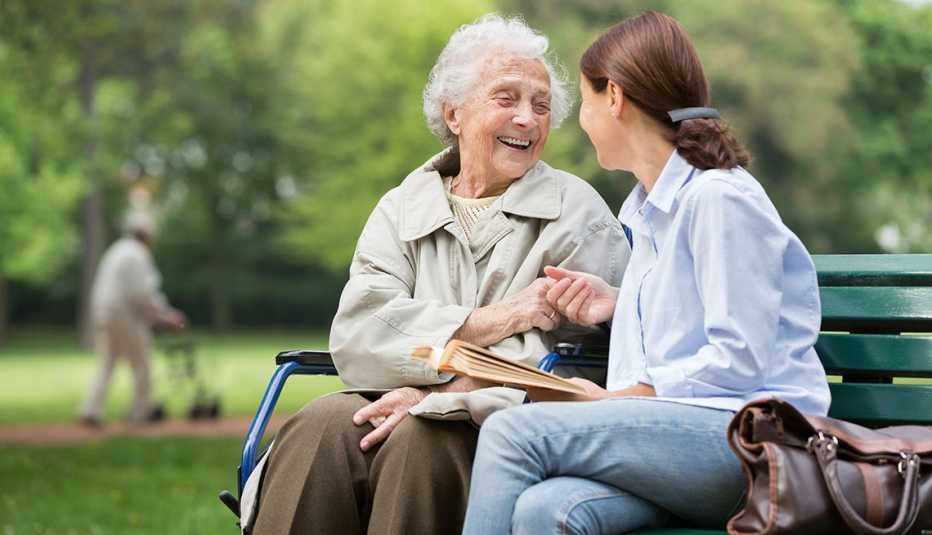AARP Hearing Center
MJ Grant has been a caregiver to her mother, Carmen Grant, who is deaf and has dementia, for nearly a decade. After becoming frustrated with the limited support for deaf seniors, Grant turned to social media to raise awareness, gaining 62,000 followers. She also runs a sign language interpretation business and is coproducing a documentary about her family’s experience with dementia, called I Remember When ... . Grant talked to us about seeing her mom’s care in a nursing home suffer because of her deafness — “I’m constantly seeing the miscommunication” — spurring her to take action.
How did you begin caregiving?
My mom moved back to Maine [from Rhode Island] in 2014. She was there as a caregiver for her mom with dementia. As my mother was caring for her mother, she ended up with symptoms of dementia herself.
My dad got sick in 2015 with something similar to ALS. Then it became navigating care for my dad for the next few years and navigating care for my mother, who was still able to live alone until 2016.
In an Instagram video you mention you and your husband cared at home for your mother and mother-in-law, who were both diagnosed with dementia.
There was overlap where they both lived here at the same time for a year. A month before the pandemic, we found a place for my mother-in-law.
We couldn’t get support during the pandemic. Even with my kids here trying to help out, it was just so hard. In August of 2021, we had all been so strapped with overwhelm and stress. We had to move my mom, and then we decided we would move my mother-in-law closer. They’re in the same [nursing] home, about a mile away.
What were the differences in available services for your mother, who is deaf, and mother-in-law, who is not?
What was stressful about the situation with my mother is there’s no deaf services in our state that provide care for deaf seniors or deaf people with dementia. As the pandemic started to wane a bit, we were able to hire a couple people to come into [our] home. They both knew sign language; they both had experience working with folks with disabilities or with dementia. I was able to get some support.
It’s just always been a huge barrier because it requires so much education. If you don’t have exposure or experience with something, you don’t know what you need to provide. It’s not only me having to make hard decisions about putting my mom in a home that is not set up for her. It’s also having to have the emotional resources and energy to educate staff about how to work with her, what her communication needs are. I’m constantly seeing the miscommunication.










































































